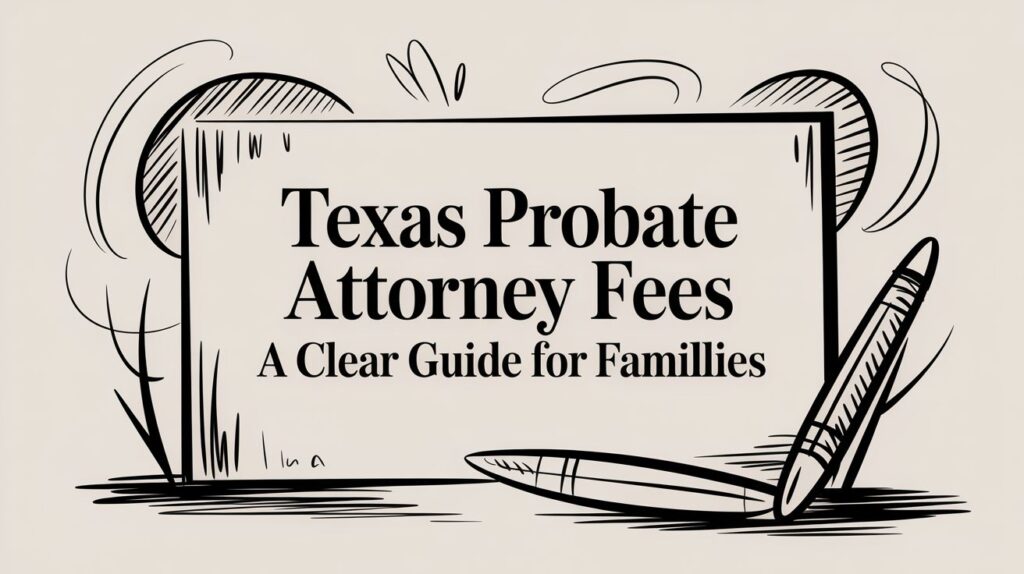In your 30s and 40s, estate planning rarely feels urgent. Between building a career, managing debt, raising children, or navigating adult relationships, the idea of death or incapacitation can seem too distant to plan for. In Texas, however, estate planning is just as important for young and middle-aged adults as it is for retirees. And unfortunately, it’s during these decades that many people make foundational estate planning mistakes that can cost their families time, money, and unnecessary stress.
Estate planning is not just about writing a will or assigning who gets your property. It involves protecting your children, managing your health and finances if you’re incapacitated, and preparing for the long-term care of dependents and loved ones. When done right, it becomes a powerful tool to prevent court battles, minimize tax burdens, and ensure your wishes are respected even when you’re not around to voice them.
This article explores the most common estate planning mistakes Texans in their 30s and 40s make, why they happen, and how to avoid them before it’s too late.
Assuming You’re Too Young to Plan

The biggest mistake people in their 30s and 40s make is believing that estate planning is only for older adults or the wealthy. This misconception often delays planning until it’s no longer optional. But the truth is, many of life’s most vulnerable moments happen well before retirement age.
Unexpected illness, accidents, or incapacity can happen at any age. If you have young children, own property, run a business, or are simply earning an income that supports others, you already have an estate worth protecting. Without a plan, Texas law will determine what happens to your assets, children, and even your medical care decisions.
In Texas, the state’s intestacy laws come into play when someone dies without a will. These laws follow a strict formula for dividing property that may not reflect your personal wishes. If you’re single, your estate could end up in the hands of distant relatives. If you’re married, your spouse may have to share your estate with your parents or children from a previous relationship. Planning now avoids these outcomes and gives you control.
Naming Guardians for Children Too Late—or Not at All
If you’re a parent, especially of minor children, estate planning is not just advisable—it’s essential. One of the most critical roles your estate plan can play is naming a guardian to care for your children if you die or become incapacitated. Yet many parents overlook this entirely.
In Texas, if you don’t name a guardian for your children in a legally binding way, a court will do it for you. Judges do their best to make decisions in the child’s best interest, but without your input, their choices may not reflect your values or preferences. Naming a guardian in your will ensures your children will be raised by someone you trust and who shares your parenting philosophy.
Another point to consider is naming backup guardians in case your first choice is unavailable. It’s also wise to have conversations with your chosen guardians to ensure they are willing and prepared to take on the responsibility.
Failing to Plan for Incapacity
Estate planning isn’t only about what happens when you die—it also covers what happens if you become unable to manage your own affairs while alive. A serious accident, stroke, or illness could leave you temporarily or permanently incapacitated. If you haven’t planned for this possibility, your loved ones may need to go to court to gain the authority to help you.

This often-overlooked situation can be avoided by creating a durable power of attorney for financial decisions and a medical power of attorney for healthcare decisions. These legal tools allow you to name someone you trust to manage your finances and make medical choices if you’re not in a position to speak for yourself.
Texas law allows you to clearly document your medical preferences through advance directives and living wills. Without these documents, your family may face conflict or confusion during an already emotional time.
Overlooking Life Insurance and Beneficiary Designations
Many Texans in their 30s and 40s buy life insurance to protect their families, but fail to update their policies or align them with their estate plans. It’s common to name a spouse or parent as the beneficiary when the policy is first purchased, then forget about it for years. If you go through a divorce, remarry, or have more children, failing to update your designations can create unintended consequences.
In Texas, beneficiary designations on life insurance policies, retirement accounts, and payable-on-death accounts override whatever your will says. That means if your ex-spouse is still listed as the beneficiary on your policy, they’ll likely receive the money, regardless of what your estate plan says.
You should also be cautious about naming minor children as beneficiaries. If a child inherits money directly and is underage, a court-appointed guardian will control the funds until they turn eighteen. A better solution is to create a trust and name it as the beneficiary, with instructions on how and when the money should be distributed.
Ignoring Estate Taxes and Asset Protection
Many people in their 30s and 40s believe they don’t need to worry about estate taxes or lawsuits, especially if they haven’t accumulated significant wealth. But as your income, investments, and property grow, so do your liabilities.
While Texas does not have a state estate tax, the federal estate tax may still apply to high-net-worth individuals. More realistically, for most families, asset protection becomes an issue during lawsuits, divorce, or creditor claims. Small business owners are particularly vulnerable if they haven’t taken steps to separate personal and business assets or to create legal shields through business entities.
Simple actions like setting up a living trust or forming an LLC can go a long way in protecting your assets and shielding your family from legal exposure. Working with an estate planning attorney early can ensure that your plan grows alongside your wealth and responsibilities.
Forgetting Digital Assets and Online Accounts
In an increasingly digital world, your online presence is part of your estate. Yet very few people in their 30s or 40s include digital assets in their planning. Email accounts, cloud storage, cryptocurrency wallets, and social media profiles all hold value—sometimes financial, sometimes sentimental, sometimes legal.
Without instructions, your loved ones may be unable to access or manage these accounts after you’re gone. In Texas, you can authorize someone to manage your digital assets by using the appropriate legal language in your estate plan. This includes granting access to passwords, specifying who can delete or archive online accounts, and providing direction for handling digital currency or content.
Not Updating Plans After Major Life Events
Estate plans are not one-time documents. They should evolve as your life changes. Yet one of the most common mistakes is creating a will or trust and never revisiting it.
Major life events—marriage, divorce, childbirth, adoption, career changes, and moving to a new state—should all trigger a review of your estate plan. Texas laws differ from other states, so if you’ve recently moved, your existing documents may not be fully compliant.
Regular reviews help ensure your plan reflects your current relationships, assets, and goals. If your chosen executor, trustee, or guardian is no longer the best fit, updating your plan can prevent confusion or conflict later.
Relying on DIY or Incomplete Planning Tools
Online will templates and do-it-yourself planning kits are tempting, especially for busy professionals trying to save money. But they often fail to comply with Texas law or leave out important documents like durable powers of attorney and advance healthcare directives. Worse, a poorly drafted document could create ambiguity that leads to court disputes.
Even if your estate is modest, working with an experienced Texas estate planning attorney can make a significant difference. They will ensure your plan is not only legally sound, but also customized to your family, goals, and long-term needs.
Delaying the Conversation with Loved Ones

Finally, perhaps the most human mistake is simply avoiding the conversation altogether. Death and incapacity are difficult topics, especially for young families. But silence only increases the chance of miscommunication, conflict, and unintended outcomes.
Talking openly with your spouse, children (if age-appropriate), parents, and potential guardians or executors helps create a shared understanding of your wishes. It also provides clarity and peace of mind—both for you and the people you care about most.
These conversations don’t have to be morbid or overwhelming. Framing them around preparation, responsibility, and love can make the discussion more comfortable and productive.
Conclusion: Planning Early is a Gift, Not a Chore
Estate planning in your 30s and 40s isn’t about expecting the worst—it’s about protecting the best parts of your life. It’s about ensuring your children are raised by the people you trust, your assets go to those you love, and your healthcare decisions reflect your values.
In Texas, avoiding these common mistakes can save your family months or years of confusion, expense, and court involvement. Estate planning is not a luxury for the rich or elderly; it’s a necessity for anyone who wants to protect their family, finances, and future. If you haven’t started your estate plan yet—or if it’s been collecting dust—it’s time to take the next step. A well-crafted estate plan doesn’t just speak for you when you’re gone; it serves as your voice, your vision, and your values—no matter what life brings.








